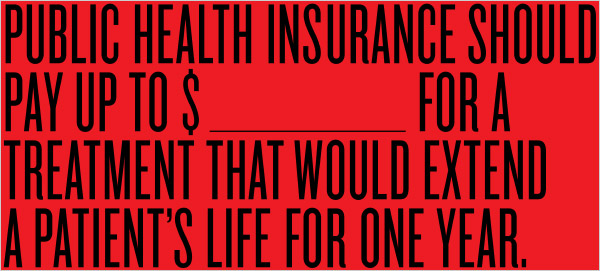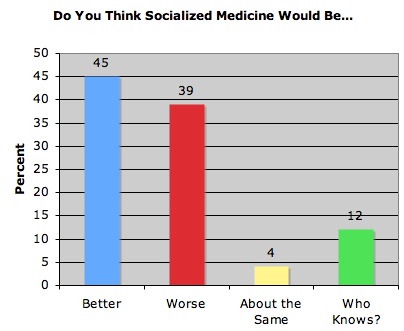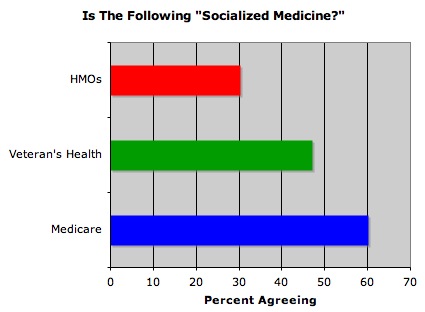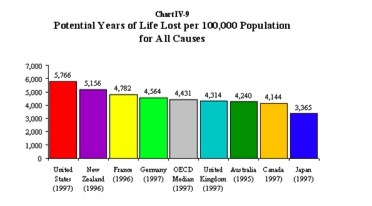Read this fascinating (and rather encouraging, if anyone pays attention [somebody did; see update below]) article by Atul Gawande on, among other things, the enormous difference in health care costs from community to community. Oddly, many communities with the best care also have the lowest costs, and not just by a few percent. Why?
THE COST CONUNDRUM
What a Texas town can teach us about health care.
by Atul Gawande
… When you look across the spectrum from Grand Junction to McAllen—and the almost threefold difference in the costs of care—you come to realize that we are witnessing a battle for the soul of American medicine. Somewhere in the United States at this moment, a patient with chest pain, or a tumor, or a cough is seeing a doctor. And the damning question we have to ask is whether the doctor is set up to meet the needs of the patient, first and foremost, or to maximize revenue.
There is no insurance system that will make the two aims match perfectly. But having a system that does so much to misalign them has proved disastrous. As economists have often pointed out, we pay doctors for quantity, not quality. As they point out less often, we also pay them as individuals, rather than as members of a team working together for their patients. Both practices have made for serious problems. …
Or is it discouraging? Gawande concludes:
Something even more worrisome is going on as well. In the war over the culture of medicine—the war over whether our country’s anchor model will be Mayo or McAllen—the Mayo model is losing. In the sharpest economic downturn that our health system has faced in half a century, many people in medicine don’t see why they should do the hard work of organizing themselves in ways that reduce waste and improve quality if it means sacrificing revenue.
In El Paso, the for-profit health-care executive told me, a few leading physicians recently followed McAllen’s lead and opened their own centers for surgery and imaging. When I was in Tulsa a few months ago, a fellow-surgeon explained how he had made up for lost revenue by shifting his operations for well-insured patients to a specialty hospital that he partially owned while keeping his poor and uninsured patients at a nonprofit hospital in town. Even in Grand Junction, Michael Pramenko told me, “some of the doctors are beginning to complain about ‘leaving money on the table.’ â€
As America struggles to extend health-care coverage while curbing health-care costs, we face a decision that is more important than whether we have a public-insurance option, more important than whether we will have a single-payer system in the long run or a mixture of public and private insurance, as we do now. The decision is whether we are going to reward the leaders who are trying to build a new generation of Mayos and Grand Junctions. If we don’t, McAllen won’t be an outlier. It will be our future.
Update: The NY Times reports that Obama has taken notice of this piece (Gawande’s, presumably, not mine).
President Obama recently summoned aides to the Oval Office to discuss a magazine article investigating why the border town of McAllen, Tex., was the country’s most expensive place for health care. The article became required reading in the White House, with Mr. Obama even citing it at a meeting last week with two dozen Democratic senators.
“He came into the meeting with that article having affected his thinking dramatically,†said Senator Ron Wyden, Democrat of Oregon. “He, in effect, took that article and put it in front of a big group of senators and said, ‘This is what we’ve got to fix.’â€
There’s pushback, of course.
[Dr. Michael L. Langberg, senior vice president of Cedars-Sinai Medical Center] endorsed the goal of covering the uninsured, but said, “We do not believe that rushing to make large cuts in Medicare payments to hospitals is the right way to fund that coverage.†The Dartmouth team has cited Cedars-Sinai as having very high Medicare spending per beneficiary.
A ‘Common Sense’ American Health Reform Plan



